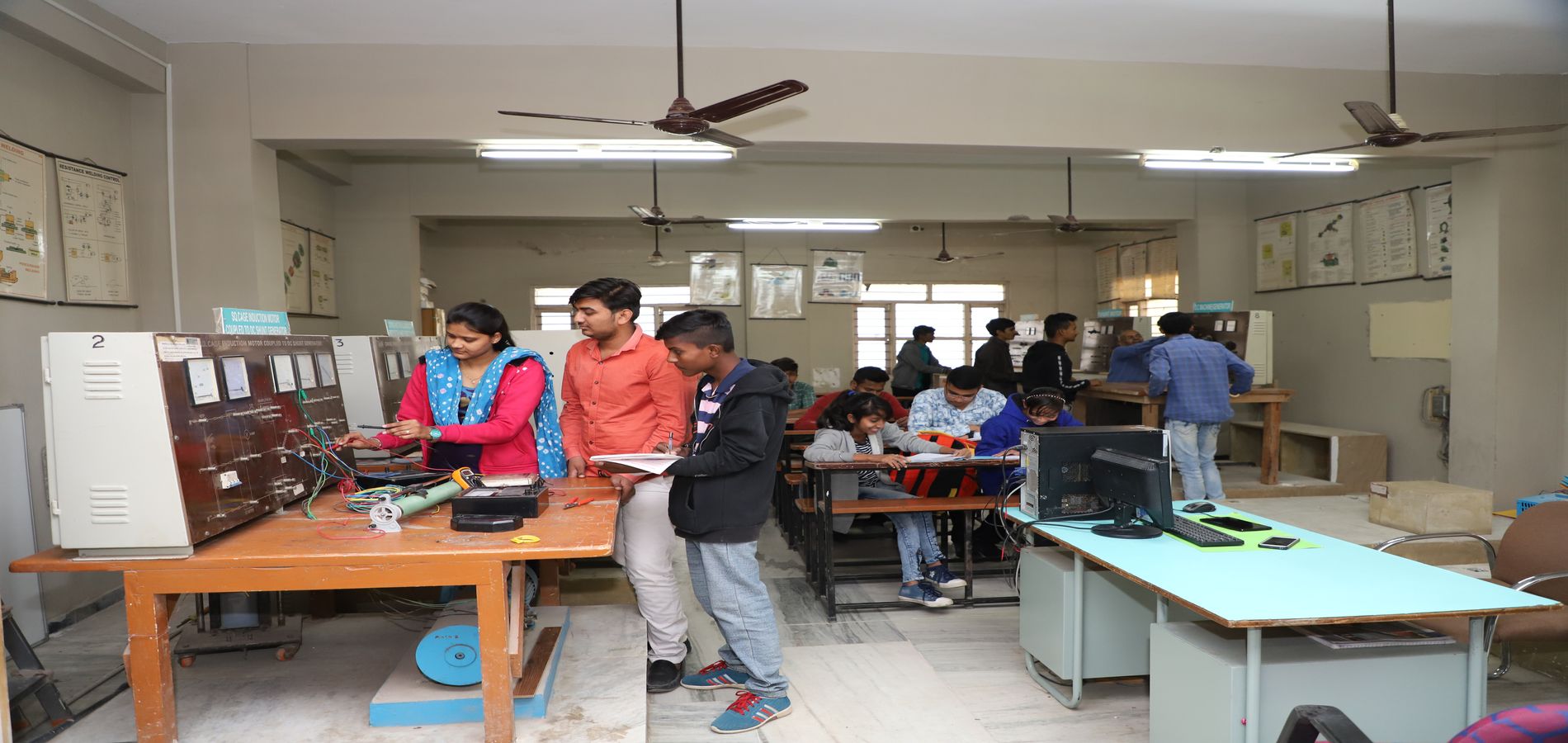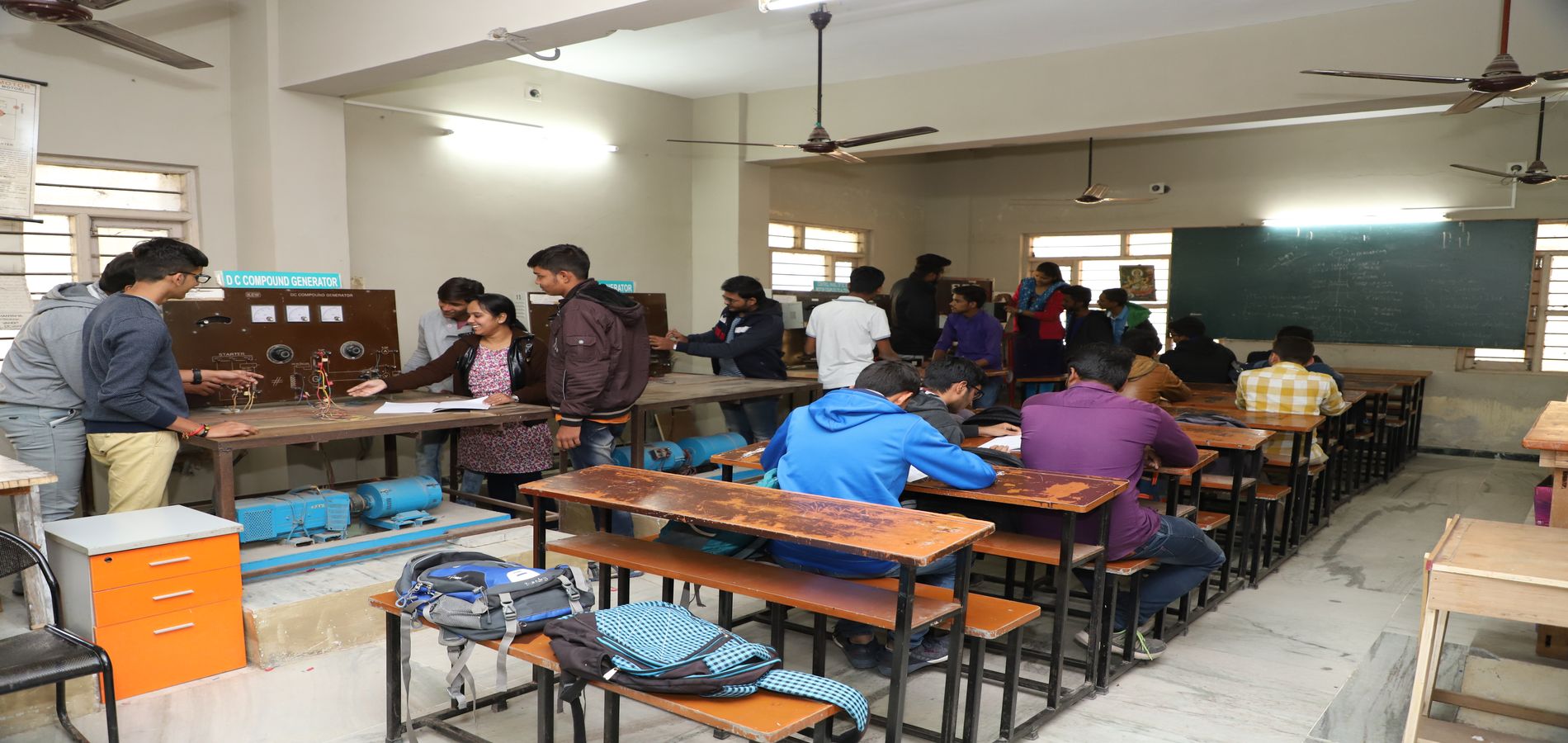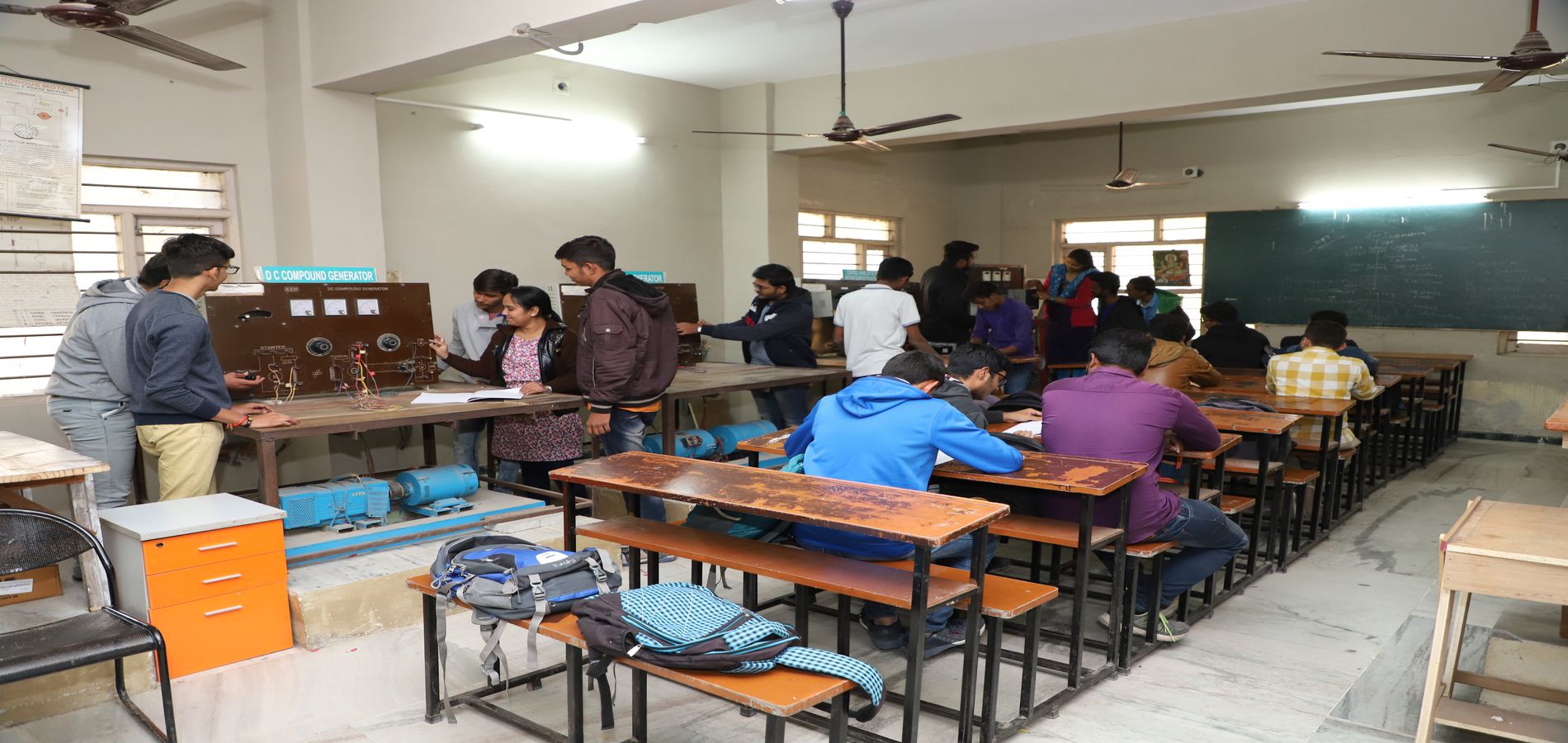
The Department of Electrical Engineering is one of the pioneering departments of RMS Polytechnic which was established in 2005 with an intake of 90 students to diploma program.
The electrical department is often at the forefront of technology advancements, and staying up-to-date with the latest technology and implementing it to improve efficiency and effectiveness. The department is well developed with infrastructures & laboratories as per the AICTE norms.
The department is enriched with highly qualified faculty members and technical staff also regular industrial visits & training are organized for students.
Personal attention is given to each student through a tutor-guardian relationship. The department has evolved over time to keep up with the ever-increasing challenges in technology development to provide a superior learning experience with a vision of the future educational needs of society.
Students of Electrical Engineering always remain at the forefront of all activities in the institute.

Vision
To be a leading electrical engineering department that provides skilled electrical engineers who use their expertise to develop innovative and sustainable solutions that meet the evolving needs of society.

Mission

Programme Educational Objectives (Peos)
PEO 1 – Professionalism:
Ability to use modern engineering tools, software, and equipment to analyze and design electrical systems.
PEO 2 – Core Competence & Career Growth:
Graduates of the program will apply knowledge and skill in Electrical engineering practices to become successful in industries.
PEO 3 – Life Long Value Based Learning:
Ability to work effectively in diverse and global environments.

Programme Outcomes (Po)
PO 1. Basic and Discipline-specific knowledge:
Apply knowledge of basic mathematics, science, and engineering fundamentals and an engineering specialization to solve engineering problems.
PO 2. Problem analysis:
Identify and analyze well-defined engineering problems using codified standard methods.
PO 3. Design/ development of solutions:
Design solutions for well-defined technical problems and assist with the design of systems components or processes to meet specified needs.
PO 4. Engineering Tools, Experimentation, and Testing:
Apply modern engineering tools and appropriate techniques to conduct standard tests and measurements.
PO 5. Engineering Practices for Society, sustainability, and the Environment:
Apply appropriate technology in the context of society, sustainability, environment, and ethical practices.
PO 6. Project Management:
Use engineering management principles individually, as a team member, or as a leader to manage projects and effectively communicate about well-defined engineering activities.
PO 7. Life-long learning:
Ability to analyze individual needs and engage in updating in the context of technological changes.

Programme Specific Outcomes (Psos)
PSO 1.
Integrate the knowledge of fundamental Electrical and Electronics for the controllability, reliability, and sustainability of electrical systems.
PSO 2.
Ability to apply economic principles to make informed decisions regarding the design, operation, and maintenance of electrical systems.
| Duration | Total Intake |
|---|---|
| 3 Years | 90 |

Laboratories
The Department is well-equipped with a variety of instruments and facilities that provide students with the tools and equipment needed to explore and develop electrical systems and technologies in a safe and controlled environment. The students are given knowledge and hands-on experience on various machines and equipment necessary for conducting practicals as per the DTE syllabus.

Class Rooms
Lecture halls equipped with multimedia Projector and CCTV.
Seminar Hall
Spacious seminar with multimedia projector and audio visual facility.
Library and Computer Center
The college library consists of more collections of technical books and journals. A computer center facility is provided to students in the college to facilitate information access from Internet.
Get in touch
Fill out the form and an our representative will reach out to you shortly.





